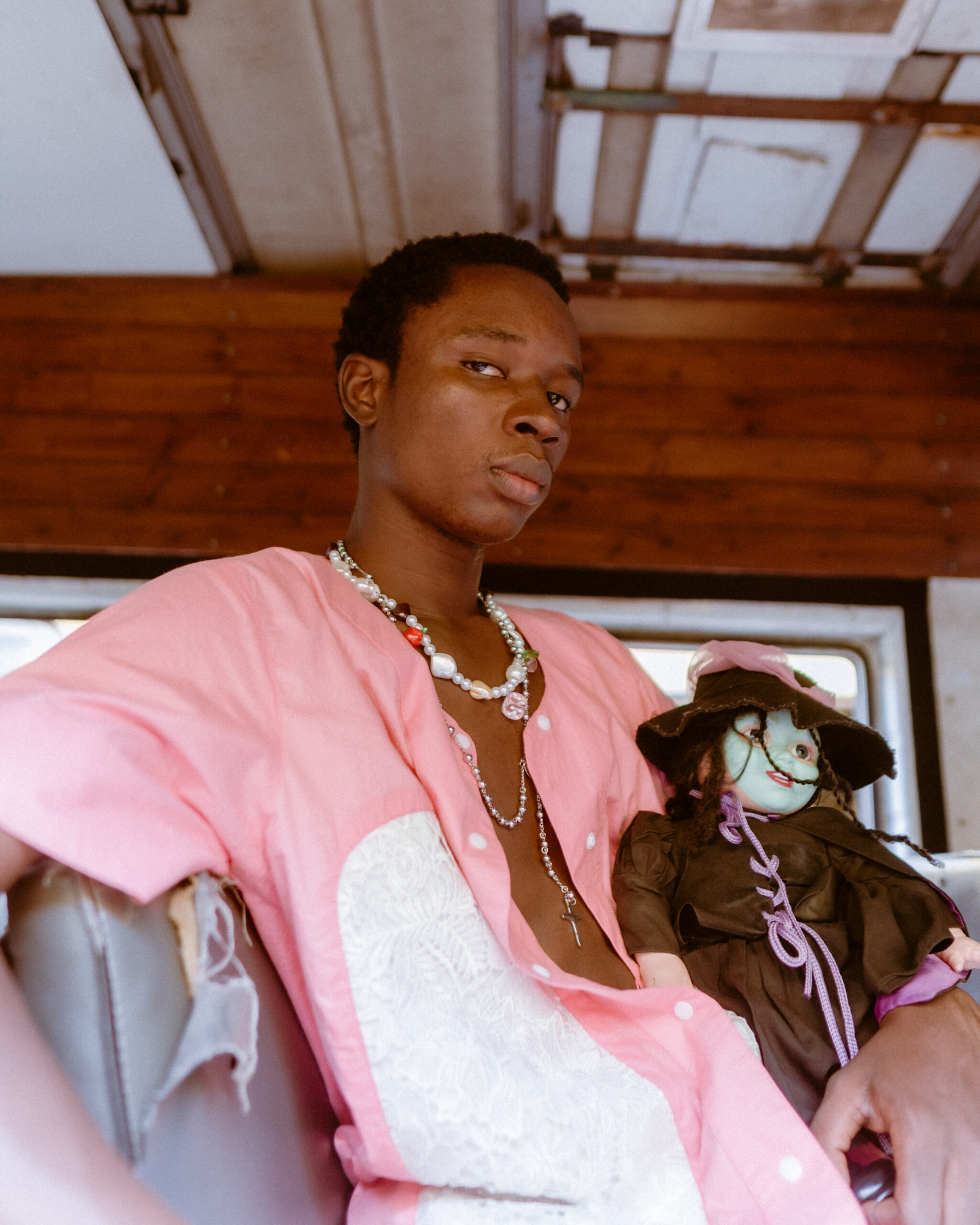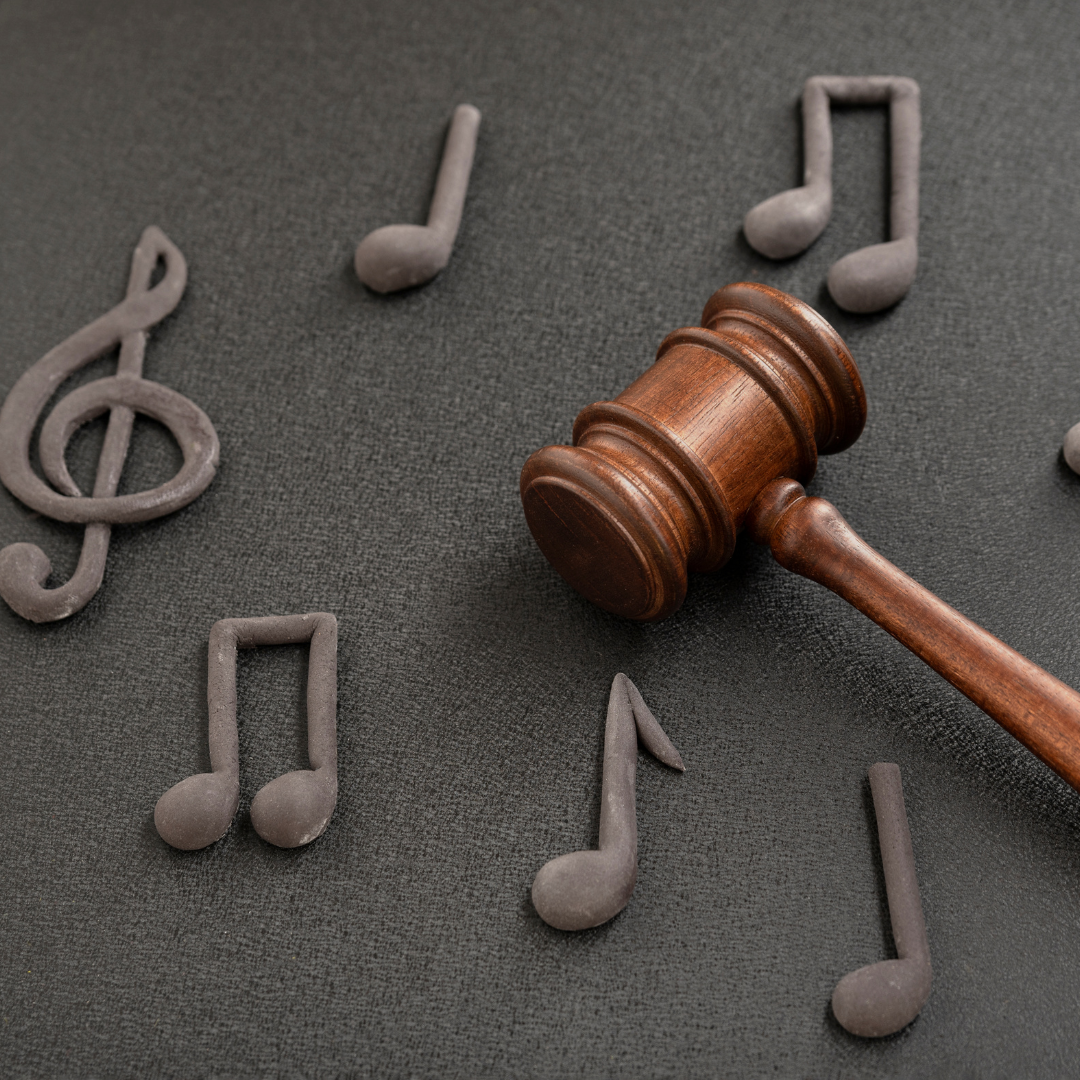

In the dynamic landscape of the music industry, the emergence of new talents is crucial for its continuous evolution. CandyTimi, renowned for his prowess in marketing, Public Relations (PR), creatives, Artist & Repertoire (A&R), and executive production, spearheaded the Funfillage Project. This collaborative EP is the first EP of other cross-continental collaborative projects that will see Funfillage assemble rising artists, also
venture serves as a platform to promote and introduce budding artists from 3 different countries in Africa to the mainstream audience. Funfillage, an amalgamation of media, marketing, artist development, and community support, embodies CandyTimi and his team’s commitment to nurturing creativity and fostering growth within the music industry.
Funfillage’s dream stemmed from their deep-rooted passion for discovering and uplifting emerging artists. Recognizing the challenges faced by new talents in gaining visibility and recognition, they envisioned a platform that would not only showcase their abilities but also provide comprehensive support throughout their artistic journey. With this mission in mind, CandyTimi and his team established Funfillage as a multifaceted entity dedicated to empowering artists and amplifying their voices.

At the heart of the Funfillage Project lies the collaborative EP, meticulously curated and produced under CandyTimi’s guidance. This EP serves as a showcase of diverse talents across various genres in Africa, offering a glimpse into the vibrant tapestry of emerging artists’ creativity. Through strategic curation and meticulous production, FunFillage ensures that each track resonates with authenticity and innovation, capturing the essence of the artists’ unique vision with 12 different artists under 7 tracks.
Beyond the confines of traditional music promotion, Funfillage employs a holistic approach to showcase new talents on the project such as Adam Srae, Emaxee, DIPCRACY, Hanomalee, Ego!, Ella Gomenti, D-Ennay, Sean Ayce, Chibbs, Kurry & Vinn. Leveraging its robust media and marketing infrastructure, Funfillage amplifies the reach of the collaborative EP, garnering attention from mainstream audiences and industry insiders alike. Through targeted promotional campaigns, multimedia content creation, and strategic partnerships, CandyTimi and the Funfillage team elevate the visibility of emerging artists, positioning them for success in the competitive music landscape.
CandyTimi’s leadership in the Funfillage Project exemplifies a paradigm shift in the music industry, where fostering new talents is not just a passion but a mission. Through his expertise in A&R and executive production, CandyTimi has curated a collaborative EP that not only promotes emerging artists but also embodies the spirit of creativity, innovation, and community. As Funfillage and CandyTimi continue to make waves in the industry, it serve as a beacon of hope for aspiring artists, ushering in a new era of inclusivity and opportunity in music. This is why we employ you again to listen to the project.

IG: @thecandytimi
Twitter: @thecandytimi01
Follow FunFillage
Instagram || Twitter || Spotify || Apple Music || YouTube

Promoting music is a multifaceted endeavor that requires a strategic and creative approach. As an A&R professional, your role in developing unique and effective promotional campaigns is crucial for the success of your artists. In this blog post, we will explore creative campaign ideas that A&R teams can employ to elevate their music promotion game and capture the attention of their target audiences.

Social media challenges have become a popular way to engage audiences and create a buzz around a song or artist. Develop interactive challenges that encourage fans to create user-generated content related to the music. This could include dance challenges, lip-sync challenges, or even challenges that spark creativity by inviting fans to reinterpret a song in their own unique way. Leverage hashtags and incentivize participation to maximize reach and engagement.
Collaborating with other artists for cover songs can help introduce your artist to new audiences and create viral moments. Identify artists – both established and emerging – who share a similar fanbase or musical style. Collaborate on cover songs and release them as singles or music videos. This cross-pollination of talent can generate excitement and increase visibility for both artists involved.
Invite a select group of fans, industry professionals, and tastemakers to exclusive pre-release listening parties. These intimate events allow you to create a personal connection with key influencers and generate early buzz around the music. Offer sneak peeks of upcoming releases, provide behind-the-scenes insights, and encourage attendees to share their excitement on social media.
Music videos are an essential component of music promotion. In the age of immersive experiences, create visually stunning and concept-driven music videos that captivate viewers. Collaborate with talented directors, choreographers, and visual artists to craft a visual storyline that complements the music. Invest in high-quality production values to make the video stand out and leave a lasting impression on audiences.
Live streaming has become a powerful tool for connecting artists with their fans. Organize interactive live stream events that go beyond traditional performances. Incorporate Q&A sessions, behind-the-scenes moments, and even surprise guest appearances. Engage with fans in real-time, respond to their comments, and make them feel like active participants in the event. These live stream events can generate excitement and build a strong sense of community around your artists.
Leverage the popularity of streaming platforms by collaborating with influential curators and playlist creators. Develop targeted campaigns that aim to get your artist’s music featured on popular playlists. Engage with curators and provide them with exclusive content, behind-the-scenes insights, or even personalized messages from the artist. These collaborations can significantly enhance the visibility and reach of your artist’s music.
Merchandise is not only a revenue stream but also a powerful promotional tool. Develop unique and creative merchandise campaigns that align with the artist’s brand and music. Limited-edition items, exclusive bundles, or merchandise tied to specific songs or album themes can create a sense of exclusivity and incentivize fans to make a purchase. Encourage fans to share their merchandise on social media, further amplifying the promotional impact.
The art of music promotion requires innovation, creativity, and a deep understanding of your artist’s brand and target audience. By implementing engaging social media challenges, organizing unique cover collaborations, hosting exclusive pre-release listening parties, creating immersive music videos, organizing interactive live stream events, collaborating with playlist curators, and developing creative merchandise campaigns, A&R teams can maximize the promotional impact and propel their artists to new heights.
Remember, as an A&R professional, your creativity and strategic thinking can make a significant difference in capturing the attention and hearts of audiences. Continually explore new ideas, adapt to evolving trends, and connect with your fanbase authentically to ensure the success of your artists in an increasingly competitive music landscape.

As an A&R professional, having a solid understanding of music production techniques is essential in identifying potential hits, providing constructive feedback to artists, and ensuring the release of high-quality music. In this blog post, we will explore some of the fundamental music production techniques that every A&R professional should know to excel in their role.

Being able to evaluate audio quality is crucial when assessing demos or recorded tracks. Familiarize yourself with the technical aspects of sound reproduction, including clarity, balance, dynamics, and overall mix quality. This knowledge will empower you to make informed decisions about the potential of a song and guide artists toward achieving professional sound standards.
Understanding song structure and arrangement is essential for identifying potential hit songs. Develop an ear for catchy hooks, memorable melodies, and engaging choruses. Pay attention to the arrangement by recognizing the placement of verses, bridges, and breakdowns to ensure the song flows smoothly and captivates listeners from start to finish.
Music production knowledge allows you to provide valuable feedback to artists and producers. Learn to articulate technical aspects effectively while considering the artist’s artistic vision. Offering constructive criticism about mixing, vocals, instrumentation, or overall sound quality can help elevate a song to its maximum potential and guide the artist toward optimal performance.
Knowing the basics of sound design can add a valuable dimension to your A&R skills. Learn about synthesizers, effects, and virtual instruments to understand how different sounds are created and manipulated. This knowledge will enable you to conceptualize and communicate fresh sonic ideas, ensuring that your artists’ music stands out in a crowded market.
The music industry is always evolving, and it’s crucial for A&R professionals to stay informed about current production trends. Explore a wide range of genres and listen to emerging artists to identify innovative production techniques that can make your artists’ music relevant and cutting-edge. Being knowledgeable about the latest trends will also demonstrate your expertise in guiding artists toward commercial success.
Collaboration between A&R professionals and producers is vital in ensuring successful music production. Develop strong working relationships with producers, understanding their creative process and technical expertise. Effective communication and partnership can create exceptional records, bringing out the best in both the artist and the production team.
Vocals are often the centerpiece of a song. Enhancing vocal production is a critical aspect of music production techniques. Acquire knowledge about microphone techniques, vocal processing, and editing. Learn to guide artists in achieving outstanding vocal performances that convey emotion and captivate listeners, ultimately elevating the impact of their music.
Explore music production software and digital audio workstations to gain practical expertise in recording, editing, and mixing music. Familiarize yourself with plugins, automation techniques, and mastering tools. This technological know-how will help you collaborate effectively with artists and producers, ensuring the best results in the final production.
Mastering music production techniques as an A&R professional will enhance your ability to discover, develop, and guide artists toward success. By understanding audio quality, and song structure, providing constructive feedback, and staying updated with production trends, you’ll elevate the quality of the music you work with. Embrace creative sound design, collaborate effectively with producers, emphasize vocal production, and leverage technology to refine and enhance the production process.
Remember, becoming proficient in music production techniques allows you to identify hit potential and guide artists to reach their full creative expression, making you an invaluable asset in crafting exceptional music in the ever-evolving music industry.


In an electrifying display of passion, stamina, and unyielding creativity, A&R Duty in collaboration with HitSound have shattered records and expectations alike. They have turned the impossible into a soul-stirring melody, creating a new Guinness World Record for the longest recording marathon with multiple artists for an incredible 75 hours.
This triumph is not only a testament to relentless dedication but also solidifies A&R Duty’s place as the first independent A&R company globally to A&R an astounding 50 songs within the span of our 75-hour marathon. HitSound has also seized the spotlight, becoming the world’s first music producer to produce and record over 50 songs within the pulsating beats of time weaving through these 75 hours. Remember these names, remember this day — history has been scripted.

But the ripples of this incredible venture flow beyond our studio spaces. They echo through the heart of Afrobeat and shape a dynamic force in the global music market space. A&R Duty now proudly stands as the first independent A&R company in Africa to enlist professional prowess in pursuit of groundbreaking sonic adventures.
From Lagos to Los Angeles, from Accra to Amsterdam, a new wave of Afrobeat is on the rise. Each chord struck, each lyric spun into gold during this marathon has contributed to a rich tapestry of music that will shape not only the Afrobeat genre but also the texture of global musical artistry.
We invite you to revel in this triumph and look forward to continually lighting the blaze that fuels the industry. As we venture into fresh trails and uncharted melodies, A&R Duty continually stands as the guiding flame. Because passion never rests and ambition has no finish line.
For more information on A&R Duty’s serenading saga across 75 hours, or to schedule interviews and additional press inquiries, please contact:
Damilare Farotimi
Talent Relation Officer,A&R Duty
07069317052
Drey@aandrduty.com

Codest Boi stands out as a beacon of creativity and resilience in the vibrant landscape of Nigeria’s ever-evolving music scene. The Lagos-based artist has recently dropped his first offering of the year 2023, All My Love . it’s less than likely that he plans on letting his foot off the gas pedal.

Prior to his break into the music industry, CodestBoi had already started his music career in the year 2012. He nurtured his love for music all through his years in Ghana, up until he got into mainstream afrobeats.
His artistic journey began In March of 2018 when he released his first official singles titled “Jaye” and “Gradually” Just a few months after this launch he put out his hit single known as “Laye mi”, featuring Teni entertainer which earned him significant recognition in the music industry. Influenced by music mavericks like Wizkid. Drake, Shakka, Justin Bieber, Bryson Tiller, Wande
Coal, and Fela.

He draws inspiration from the greats of the Afrobeats, seamlessly blending their influences into his style, and what truly sets Codest Boi apart is his unwavering commitment to diversity and vulnerability in his music Personal growth played a pivotal role in the creation of this new upcoming project. Codest Boi explained, “A certain level of growth brings out a certain level of vulnerability. You begin to touch on things you usually would stay away from or try to suppress, and I did that with this album.” As
he enters a new era, listeners can expect a fresh set of sounds that may be uncommon for him. He acknowledges the unpredictability of his musical evolution, stating, “To be completely honest, I have no idea how my music will evolve and what direction it’ll go in the future, but to me, that’s the best part about it. The unknown is exciting. I have so many different styles, and honestly don’t know if I’ll end up leaning more in one direction than the other.”
If this is your first exposure to the rising artist, then you’re in luck because this is the perfect place to start., Codest Boi is undoubtedly an artist to keep on your watch.


Determining how much an artist should receive for fair use and parody of music can be a complex issue with no set formula or standard. Compensation for fair use and parody typically depends on various factors, including the specific circumstances of the use, the agreements reached between the parties involved, and the prevailing industry practices. Here are some considerations:
1. Negotiation and Agreement:
3. Industry Standards and Practices:
4. Legal Counsel and Expert Advice:
Ultimately, there is no one-size-fits-all answer to determining how much an artist should receive for fair use and parody of music. It is crucial for the parties involved to engage in open communication, negotiate in good faith, and consider the unique circumstances of each case. Seeking legal counsel and professional advice can help ensure a fair and equitable agreement that respects the rights of the copyright holder while compensating the artist appropriately.

At A&R Duty, we take pride in conducting exclusive interviews with independent bands, musicians, and artists from around the world. Our conversations dive deep into their upcoming releases, planned tour dates, and other fascinating topics that showcase their uniqueness and make them stand out from the crowd!
To be featured here and interviewed, submit here.
Get ready to dive into the extraordinary world of Firstklaz, the rising artist and songwriter who has been making waves with his infectious song “I Like Girls.” This visionary talent has captured the hearts of music lovers around the globe. In this exclusive interview, we have the privilege of delving into Firstklaz’s creative process, exploring his experiences in the entertainment capital, and uncovering his grand vision for the future. Brace yourself for a captivating conversation that will leave you inspired and eager to learn more about the mind behind the music. Prepare to be enchanted as we uncover the triumphs, challenges, and brilliant future that lies ahead for Firstklaz. Let’s get started!

Andrea: Hi Firstklaz, we’d love to know more about you and your preferences when it comes to the perfect night out. Can you share with us your ideal evening and the kind of company that would make it truly special?
Firstklaz: Absolutely! As an artist who values my personal space and finds comfort in quieter settings, my ideal night out reflects my innate introverted nature. Picture this: a cozy atmosphere with soft lighting, accompanied by a captivating art gallery or a serene acoustic performance. Surrounded by a select group of close friends or perhaps someone who understands my introversion, we would engage in deep conversations, appreciating the artistry and the beauty of the moment.
Whether it’s sharing laughter and stories amidst the company of like-minded souls or simply basking in the peaceful ambiance of a cozy reading nook, my ideal night out is all about nurturing meaningful connections and finding solace in the things that truly resonate with my introverted soul.
In summary, my perfect evening embraces the warmth of intimate settings, intellectual conversations, and a true appreciation for the arts. It’s all about creating unforgettable memories with individuals who understand and respect my introverted nature, allowing me to fully embrace the beauty of an ideal night out that aligns with who I am at my core. Thank you for the fantastic question!
Yeah, that’s good that’s interesting.
Andrea: Okay, so on days when you must go out because I mean it’s not something we can entirely rule out but on days when you just must go out, who would you like to go with you? Who would you take with you?
Firstklaz: Yeah, I have a friend whose name is web-plug.
Andrea: Web plug?
Firstklaz: Yeah, I like going out with him because he’s outspoken. Those kinds of people create opportunities for you. There are things I can’t say myself as an artist because it might come off as trying to brag, so I like going out with him because he says them on my behalf
Response (Andrea): I like that. I’m with you on that. I’m with you on that, everyone likes an intellectual speaker, and having that kind of person as a friend is a plus, a huge plus, and a breath of fresh air, I can’t lie.
Firstklaz: Yes, I’ve listened to your song, your music is so thrilling, and it catches my attention and the attention of the whole of A&R Duty, I can say that for sure.
Response (Andrea): Thank you.

Andrea: Who do you make music for?
Firstklaz: Everybody. yeah, my music is not boxed like it’s not limited to a particular set of people. I don’t like limiting myself because I feel like as humans, we can do anything we can imagine so I don’t like putting myself in a box. I try to do something everybody can enjoy.
Andrea: Firstklaz, networking plays an integral role in the art world, and we’d love to know more about your approach to it. How do you go about networking, and how does it fit into your artistic journey?
Firstklaz: That’s a great question. When it comes to networking, I believe it’s an essential part of the art world and a vital tool for any artist seeking to make their mark in the industry. For me, networking involves a multifaceted approach that encompasses both physical and digital outreach.
In terms of physical networking, I attend art events, exhibitions, and other gatherings within my community. These events provide an opportunity for me to meet other artists, art collectors, and industry professionals. By engaging with them and building meaningful relationships, I can expand my knowledge of the art world, gain valuable insights about exhibition opportunities, and build my reputation as an artist.
When it comes to digital networking, social media platforms are an excellent means for me to showcase my artwork, connect with other artists and industry professionals, and engage with a wider audience. Posting regularly, using relevant hashtags, and interacting with followers are essential aspects of digital networking for me.
Networking is not just about finding new opportunities, but it’s also about building lasting relationships. When you focus on building genuine connections, it becomes more than just a means to an end and instead becomes a fulfilling experience that helps you grow both professionally and personally.
Andrea: Your latest single “I like girls”. It has stunned our speakers and it has kept them awake a lot. I love it. Like I said before, I love it and I’d like to ask what the vision behind the track was. And tell us who was involved in the creation of that song.
Firstklaz: Okay the vision for that song is… most times when I pick up my phone, I’m on Twitter especially.
When I scroll through, I see people trying to insult women and say nasty stuff about them. Most people saying those things have sisters, we have significant others, we have so many special women in our lives, so I don’t know if they really like the fact people say stuff about their sisters and all that. women are very special; I think they deserve better
And in the creation of that song; The producer, hit sound was the producer that made the beats, crazy and he sent it to me then I just like created a song and I told him the song was going to blow up.
Response (Andrea): And it did. That’s interesting, it’s good to know and I like the fact that you put women in front of your music. you made something for them, gave them a place, gave them a voice, gave them confidence, it’s good to have people stand up for women. it’s good it’s good, I like that.
Andrea: So how are things with you and how has the reaction been since you released the music “I like girls” what has been the reaction of people?
Firstklaz: It’s been crazy I really had to log out of my Instagram from my phone now when I’m talking to you because I mean like my phone right now, notifications from different places so I just don’t want anything to distract this special interview, so I had to log off my Instagram. It’s been crazy people really love this song.
Response (Andrea): Interesting, interesting.
Andrea: Okay, moving on, do you have a particular project coming out soon?
Firstklaz: Yeah, okay I’m the type of guy that I might decide to drop something today, tomorrow I’ll stop feeling it then the next day after tomorrow I’ll come up with different stuff altogether. So, I’ve recorded more than seven projects. As I said earlier, I’m a very boring guy so music is the only thing I do, most of the time. like I have other stuff, but music is what I give like my hundred. yeah, so I record a lot.
I have a project that’s supposed to come out soon, “invalid”, or “format”. like a pack of three songs. oops; oops is a song on its own. Invalid, this is a song on its own, format is a song on its own. Oops, I’ve recorded it, I’ve done everything, I even shot the video for oops but like I said I’m this type of person now that will do something, and I’ll change my mind so that’s the only thing holding that project for now and I have a short feel for it.
I’m saying it here for the first time. This is the first time I’m announcing the project.
Response (Andrea): Oh, great Thanks for sharing that with us Well, we’ll be very happy to listen to those songs and see what you have for us we’ll be delighted to. so please try and release it soon for us, we’re starving.

Andrea: Yeah, lyrically we really like your storytelling and you really let us into your current mindset which is good do you feel that writing is becoming easier for you? like over time do you think writing has become easier for you?
Firstklaz: Yeah I think so and I have always wanted to write movies and books so that’s one of the things I’ve learned a lot of like from the lyrics I learned a lot from movies like those people writing movies script writers and those people writing book authors and all that I learned a lot from their steps everything like how they break things down so I think that is helping me in my songwriting.
Andrea: That’s impressive really, very impressive. Okay, we’ve basically gone over all the questions I’ve had scheduled for you do you have any questions you would like to ask?
Firstklaz: Uh not at all. yeah, and I would like to say big ups to you guys. You are doing a great job because we artists, Artists like me need to go through a lot to get ahead so people like you make our work easier.
Response (Andrea): “Appreciate the love! ❤️👏”
Response (Firstklaz): Yeah, keep supporting Afrobeat. It would be the next great thing. It would be the new R&B.
Response (Andrea): It will. well, the plan is to grow together and with talents like you I’m sure the sky is the stepping stone. so big ups keep it up we are very impressed with everything you’ve done and what you plan on doing moving on and we do hope to keep the relationship it’s been a great time having you on it’s been very interesting, very fun I like where you communicate I like your vision and of course, I love your song so thank you very much and like I said I do hope to hear from you soon I do hope to see more stuff from you soon yeah keep up the good work keep on mastering your crafts. The sky is just your starting point. Thank you.
Andrea: Okay one more question, what do you have planned for the rest of the year?
Firstklaz: Every year, I set a milestone I want to achieve for myself. And this year, I said I want to get like 500k followers on Instagram, and on every platform earlier this year I was at 4,000 followers and this is just June and I’ve gotten to like 25k so I still believe I can get there so and I have a lot of stuff coming to a lot of work like I really want to do this I don’t want to like I said earlier I don’t want to be boxed doing stuff for this set of people I want to do global stuff I want to like I’m really going to take afrobeat global like what I said earlier. Afrobeat is going to be like the next R&B. So, like before December I know a lot of things are going to happen and a lot of things will change.
Andrea: Definitely. You are in Lagos?
Firstklaz: Yes, I’m in Lagos.
Andrea: How has the vibe been since you got here?
Firstklaz: It’s been crazy!!! Lagos is not for the weak.
Andrea: So, what have you been up to since you got here?
Firstklaz: I have been recording. Working on more projects.
Andrea: Interesting, interesting. Okay, that’s good. That’s good. I guess we will wrap it up now. Thank you, thank you for having me. Thank you for giving us your time. I’ll leave you to enjoy the rest of your day. Enjoy your holiday. Thank you so much.
Firstklaz: Thanks for having me
Listen up further on his Spotify.
See more via the IG page.
Interviewed by “Andrew Ebosetaleh Andrea”

Introduction:
The music industry is a complex and multifaceted business, and while artists may be the creative force behind the music, there are many other players involved in bringing that music to the masses. Two key players in the music industry are A&R and music publishing. In this blog post, we’ll explore the roles of A&R and music publishing in the business side of music and how they work together to support artists and promote their music.
What is A&R?
A&R, or artists and repertoire, is the department within a music label that is responsible for scouting and signing new talent, as well as nurturing the careers of established artists. A&R executives work closely with artists to help them develop their sound, image, and brand, as well as connecting them with industry professionals who can help further their careers. A&R is essential in helping artists get noticed in an oversaturated music industry and building a successful career.
What is Music Publishing?
Music publishing is the business of managing and monetizing the rights to songs and compositions. Music publishers work with songwriters and composers to promote their music, collect royalties, and license their music for use in films, TV shows, commercials, and other media. Music publishing is essential in helping songwriters and composers earn a living from their music and ensuring that their work is protected and properly compensated.
How A&R and Music Publishing Work Together:
A&R and music publishing work closely together to support artists and promote their music. A&R executives work with songwriters and composers to help them develop their craft and connect them with music publishers who can help promote their music. Music publishers, in turn, work with A&R executives to identify promising new talent and develop relationships with emerging artists.
Music publishers also play a crucial role in helping artists monetize their music. They collect royalties from streaming services, radio stations, and other sources, and ensure that songwriters and composers are properly compensated for their work. A&R executives can work with music publishers to negotiate favorable publishing deals for their artists, ensuring that they receive a fair share of the revenue generated by their music.
The Importance of A&R and Music Publishing in the Music Industry:
A&R and music publishing are both essential components of the music industry, providing support and opportunities for artists and ensuring that their work is properly compensated. Without A&R, many talented artists may never get the chance to be discovered and develop their careers. Without music publishing, songwriters and composers may struggle to earn a living from their music, and their work may not reach its full potential.
Conclusion:
A&R and music publishing are both critical components of the music industry, providing support and opportunities for artists and ensuring that their work is properly compensated. By working together, A&R executives and music publishers can help artists develop their sound, promote their music, and earn a living from their work. Aspiring artists and songwriters should be aware of the importance of A&R and music publishing in the business side of music and seek out opportunities to work with professionals in these areas to further their careers.


The music industry is a tough business, and emerging artists face a myriad of challenges in getting noticed and building a successful career. With so many talented musicians vying for attention, it can be difficult to stand out from the crowd. This is where A&R comes in – the artists and repertoire department of a music label that plays a crucial role in discovering and developing new talent. In this blog post, we’ll explore the significance of A&R in the music industry and how it can help artists get noticed in an oversaturated market.
A&R is the department within a music label that is responsible for scouting and signing new talent, as well as nurturing the careers of established artists. A&R executives work closely with artists to help them develop their sound, image, and brand, as well as connecting them with industry professionals who can help further their careers. Examples of successful artists that have benefitted from A&R support include Asake, Rema, Ruger etc
Ways in Which A&R Can Help Artists Stand Out:
Providing Guidance and Support in the Creative Process:
A&R executives can provide valuable feedback to artists on their songwriting, production, and performance, helping them refine their craft and develop their unique sound. They can also help artists identify their strengths and weaknesses and provide guidance on how to improve.
A&R executives have extensive networks within the music industry and can help artists connect with producers, managers, and promoters who can help further their careers. They can also help artists navigate the complex world of contracts and negotiations.
A&R executives can help artists develop their brand and image, including social media strategy, marketing, and publicity. This can help artists stand out in a crowded market and attract the attention of fans and industry professionals alike. They can also help artists develop their visual identity, such as album artwork and music videos.
A&R departments can provide financial support to artists, such as funding for recording sessions, music videos, and promotional materials. This can be especially beneficial for emerging artists who may not have the resources to invest in their careers.
One of the most famous examples of A&R success is Adele, who was discovered by XL Recordings’ Richard Russell. Russell signed Adele to the label and worked closely with her to develop her sound and image, helping her become one of the most successful artists of the past decade. Another example is Billie Eilish, who was discovered by her now-manager, Danny Rukasin, who was working in A&R at the time. Rukasin helped Eilish develop her unique sound and image, leading to her massive success in the music industry.
A strong A&R team can make all the difference in an artist’s career, providing valuable guidance, support, and connections that can help them succeed in a competitive industry. Working with a reputable music label with a strong A&R department can provide artists with the resources they need to build a successful career. A strong A&R team can also help artists navigate the challenges of the music industry, such as negotiating contracts and dealing with legal issues.
As an emerging artist, working with A&R can be a valuable opportunity to develop your sound, image, and brand, as well as connect with industry professionals who can help further your career. To get noticed by A&R executives, it’s important to have a strong online presence, including a professional website and active social media accounts. You should also be actively performing and recording music, and be open to feedback and constructive criticism.
In an oversaturated music industry, A&R can make all the difference in helping emerging artists get noticed and build a successful career. By providing guidance and support in the creative process, connecting artists with industry professionals, developing the artist’s brand and image, and providing financial support, A&R can help artists stand out in a crowded market. Working with a strong A&R team can provide artists with the resources they need to succeed in the music industry. As an emerging artist, it’s important to be proactive and open to feedback, and to work hard to develop your craft and build your brand.

Getting your music heard by a wider audience can be a challenge for emerging artists, but one avenue that can help is music licensing. Music licensing involves the use of music in film, TV, advertising, and other media, and can provide valuable exposure and revenue for artists. A&R, or artists and repertoire, is the department within a music label that is responsible for scouting and signing new talent, as well as nurturing the careers of established artists. In this blog post, we’ll explore the role of A&R in music licensing and how emerging artists can get their music in film, TV, and advertising.
A&R plays a crucial role in music licensing by helping artists connect with music supervisors, who are responsible for selecting music for use in film, TV, and advertising. A&R executives work with artists to identify songs that are suitable for licensing and promote them to music supervisors. They also negotiate licensing deals on behalf of their artists, ensuring that they receive a fair share of the revenue generated by their music.
To get your music noticed by music supervisors, you need to have a professional demo that showcases your best work. Your demo should include high-quality recordings of your music, as well as a brief bio and contact information. You can create your demo using home recording equipment or work with a professional studio to produce a more polished product.
Networking is essential in the music industry, and it’s no different when it comes to getting your music in film, TV, and advertising. Attend industry events, connect with music supervisors on social media, and reach out to A&R executives to introduce yourself and your music. Building relationships with industry professionals can help you get your foot in the door and increase your chances of getting your music licensed.
Music libraries are collections of pre-cleared music that music supervisors can license for use in film, TV, and advertising. Submitting your music to music libraries can increase your chances of getting your music licensed, as music supervisors often turn to these libraries when searching for music. Some popular music libraries include Musicbed, Audio Network, and Epidemic Sound.
Music supervisors often have specific requirements when it comes to selecting music for use in film, TV, and advertising. They may ask for specific genres, moods, or tempos, or require instrumental versions of your songs. Be flexible and open to feedback, and be willing to make changes to your music to meet the needs of music supervisors.
Getting your music licensed for use in film, TV, and advertising can be a valuable opportunity for emerging artists, providing exposure and revenue for their work. A&R plays a crucial role in music licensing by helping artists connect with music supervisors and negotiate licensing deals. To get your music in film, TV, and advertising, you need to create a professional demo, network with music industry professionals, submit your music to music libraries, and be flexible and open to feedback. By following these tips and working with A&R professionals, emerging artists can increase their chances of getting their music licensed and reaching a wider audience.